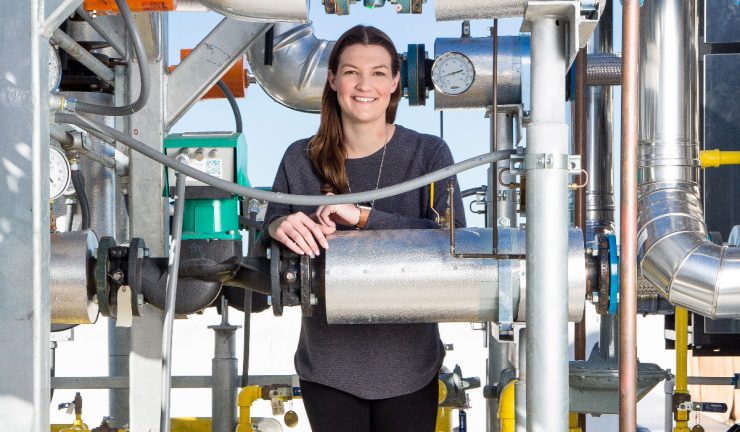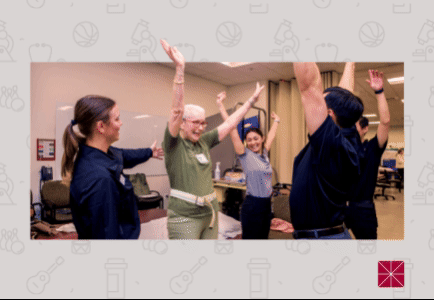How do you know when you’ve found your calling in life? For Katie Lamkin ’16, unmistakable signs flashed early in her Chapman University experience.
“After I took Computer Science 101, I couldn’t stop writing code and I couldn’t stop working on side projects like mobile apps,” she says. “I was scraping the Web for anything under the sun that would allow me to learn more about computer science and engineering.”
These days, Lamkin is still finding insights as a software engineer for Human Longevity Inc., a San Diego-based genomics health intelligence company that gives patients the tools to map longer, healthier lives. “They can customize health care to their bodies,” Lamkin says of clients.
Hers is a working life at the cutting edge of preventive care. “Other (companies) focus on the parts (of genomics) we know the most about today,” she says. “We believe in the bigger picture.”
The industry is a great fit for Lamkin, given that her mom is a physician and that science and math have always been her favorite subjects. Plus, “I always thought I had an engineering mind,” she says.
That mindset means she enjoys staring down problems “with a zillion options for solutions,” she explains. The thrill is in finding her way to robust and scalable results.
“At Chapman, every single class helped with those troubleshooting skills,” Lamkin says. But one class stood out: Human Computer Interaction with Professor Erik Linstead, Ph.D., who challenged students to develop tools that would improve the lives of children with autism. Lamkin and her classmates created a computer game built on play with virtual blocks. Who knew it could be so much fun to hone fine motor skills?
For Lamkin, it’s also a joy watching Chapman prepare to launch the Fowler School of Engineering.
“I can’t wait to essentially poach the students and work with them in the future,” she says.
This story appeared in the winter 2018 issue of Chapman Now.





Add comment